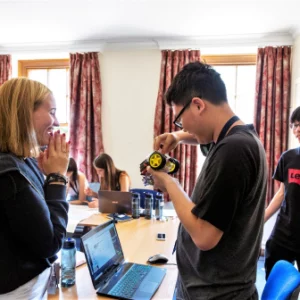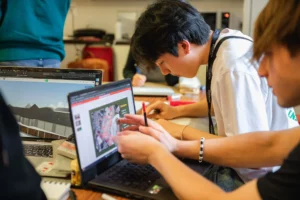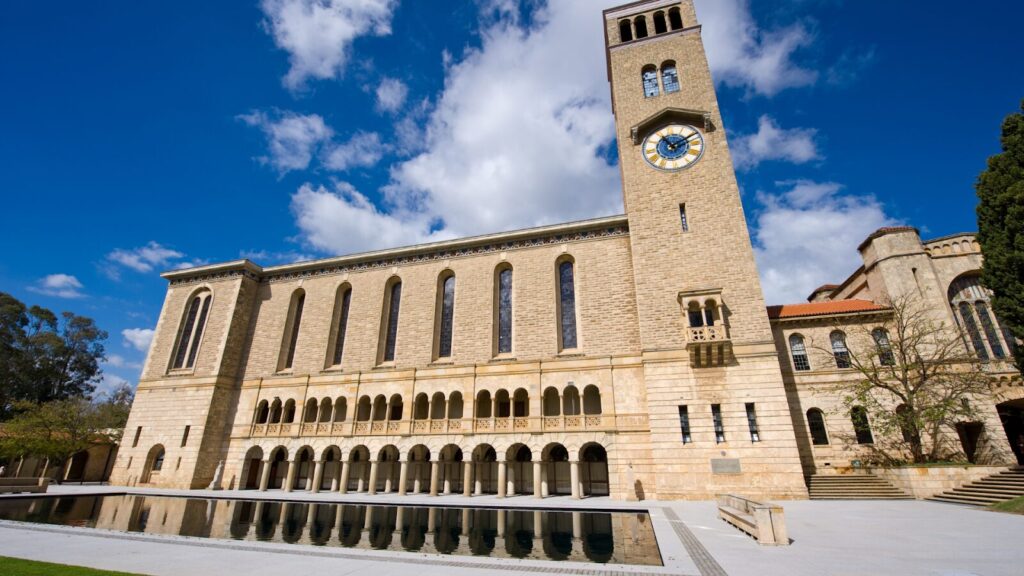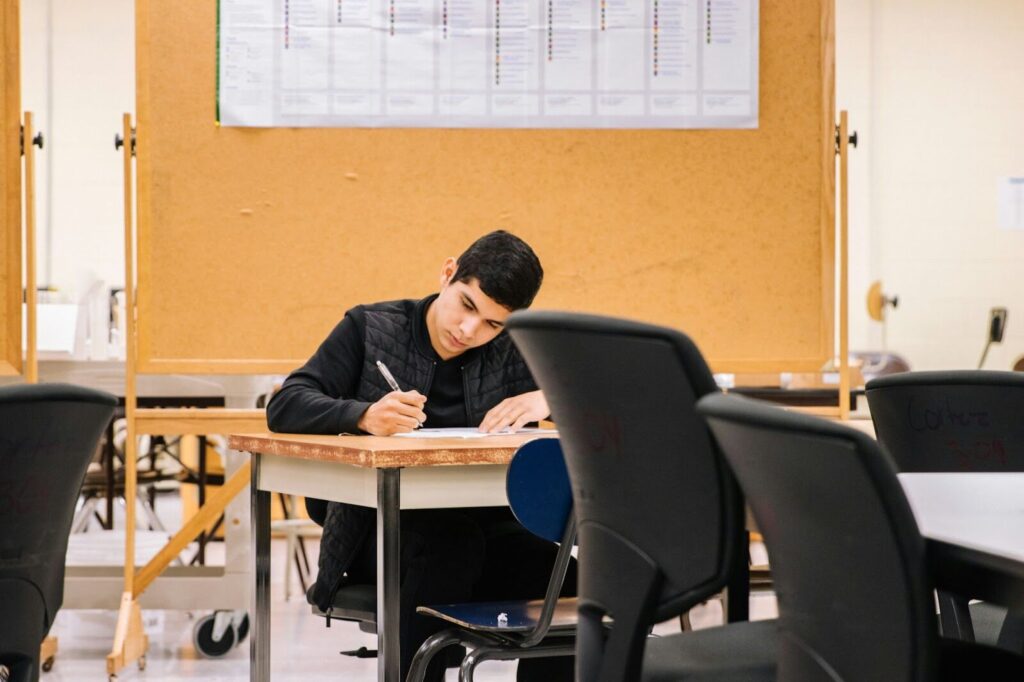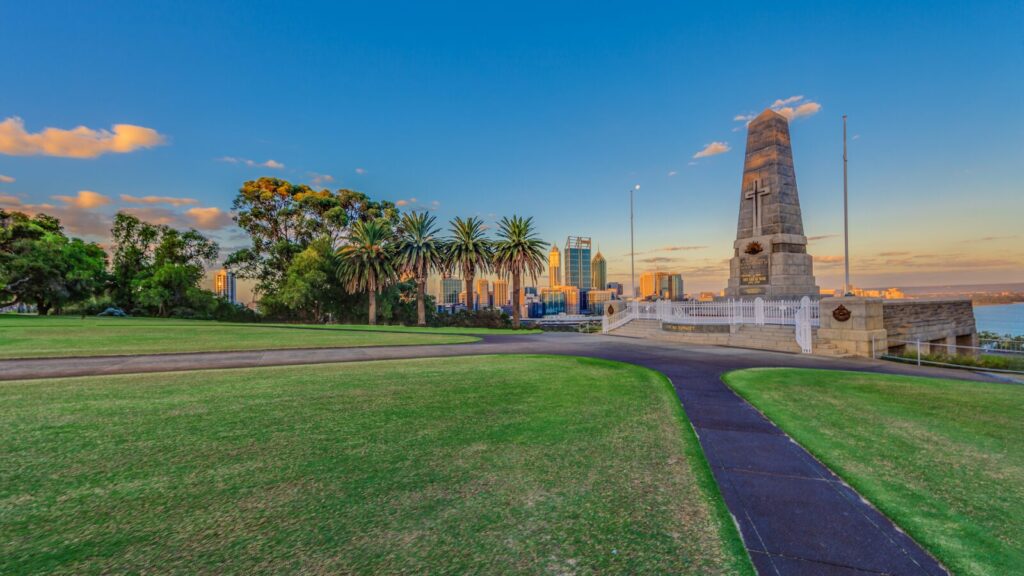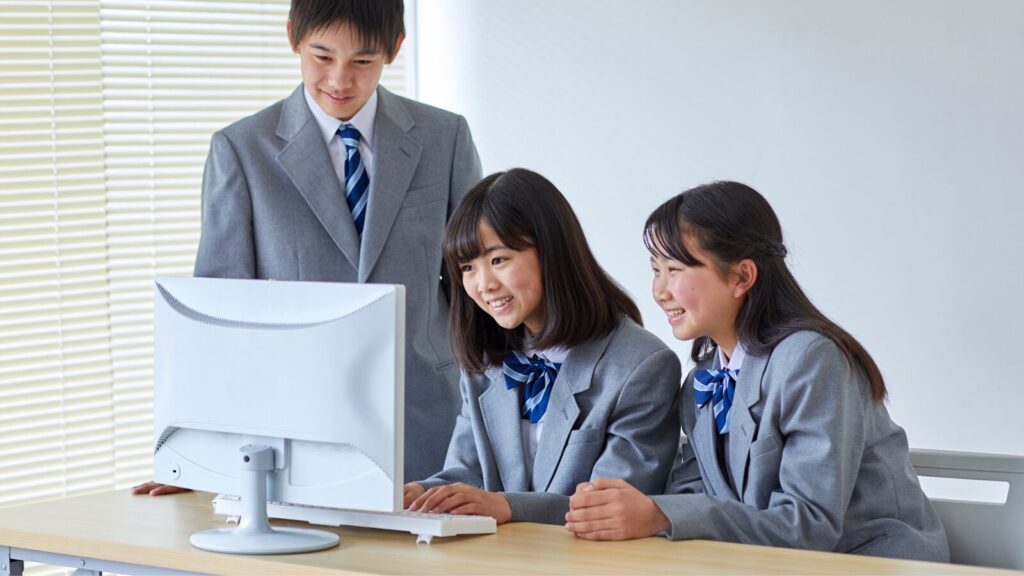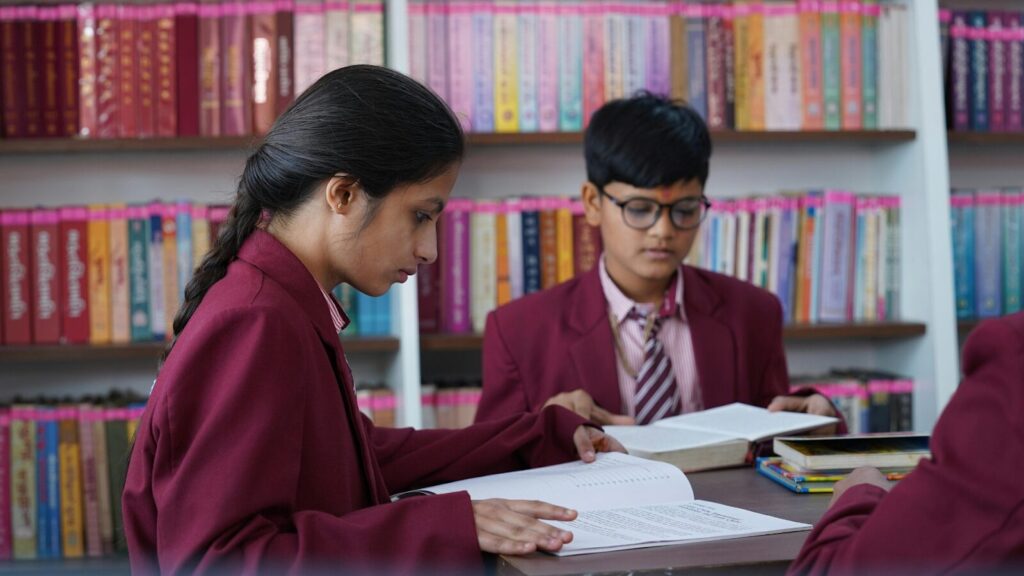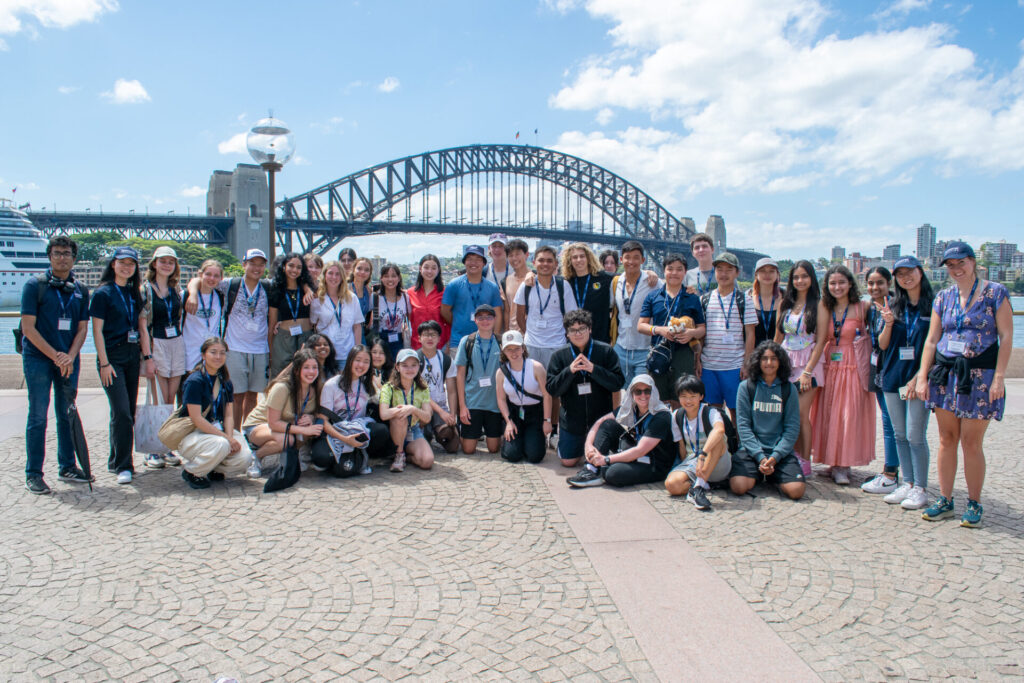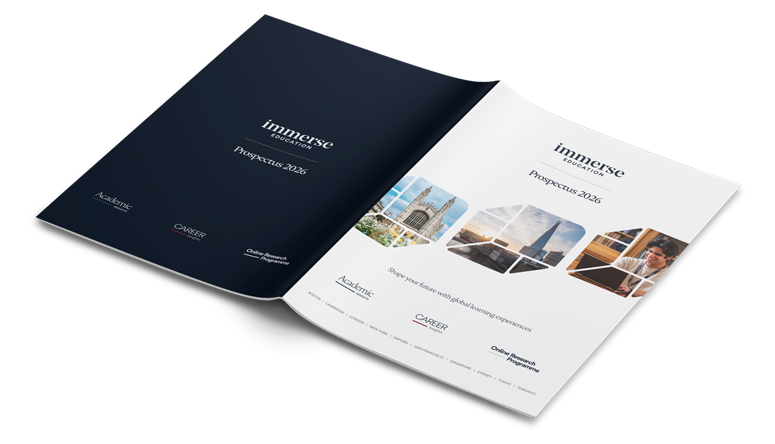This guide explores everything you need to know about how to get into the University of Melbourne, with a focus on engineering pathways.
Applying to the University of Melbourne is a major step for ambitious students aiming for engineering or related fields.
Consistently ranked among the world’s top universities, Melbourne offers rigorous academics, renowned faculty, and strong industry links.
Admission is competitive, so success depends on more than strong grades – you’ll need a clear strategy that demonstrates readiness, curiosity, and potential.
University of Melbourne and Its Engineering Reputation
The University of Melbourne stands as one of Australia’s most prestigious institutions, consistently ranked among the top 50 universities worldwide.
Its Faculty of Engineering and Information Technology (FEIT) is renowned for academic excellence, cutting-edge research, and a record of producing graduates who not only succeed academically but also drive innovation across fields such as civil engineering, biomedical systems, renewable energy, and software development.
What sets Melbourne apart isn’t just its world-class faculty or research facilities – it’s the university’s commitment to cultivating collaboration, problem-solving, and critical thinking.
Courses are built around real-world challenges, preparing graduates to tackle global issues from climate change to AI ethics.
Competition for places is fierce, and admissions committees look for more than strong grades. Successful applicants demonstrate initiative, intellectual curiosity, and a clear passion for engineering.
Understanding the Basics of Melbourne Admissions
Securing a place in engineering at the University of Melbourne requires more than strong results – you must meet academic benchmarks and subject prerequisites.
- Academic Results: Grades are central. For the Bachelor of Science (pathway to engineering), the guaranteed ATAR in 2026 is 91.00, with a lowest selection rank of 89.00 in 2025. In 2024, offers ranged from 87.00 to 99.95, with a median of 92.50. International equivalents include IB 37–42 with Higher Level Maths and Physics or strong A-Levels (AAA with Maths/Physics). Advanced AP subjects like Calculus or Physics C also show readiness.
- Subject Prerequisites: Engineering requires Mathematics Methods and Physics. Chemical or Biomedical Engineering may also recommend Chemistry. Missing a prerequisite? Melbourne accepts bridging options such as UniLearn Mathematical Methods or single-subject study through the Community Access Programme.
- Additional Materials: Engineering doesn’t usually require portfolios or auditions, but applicants must submit transcripts, references, and sometimes a personal statement. Always check course-specific requirements.
- English Proficiency: International applicants must meet standards via IELTS 6.5 overall (no band below 6.0), TOEFL, or equivalent. Those who narrowly miss may use Melbourne’s UMELBP bridging programme.
Tip: Entry scores and subject prerequisites are updated annually. Always check the University of Melbourne admissions website for the most current engineering-specific requirements before applying.
Academic Preparation and Prerequisites
The cornerstone of your Melbourne engineering application is your academic record. Success depends not only on strong final results but also on the choices you make along the way.
1. Choose Subjects Strategically
For engineering applicants, subject selection is critical. If you are aiming for mechanical, civil, or chemical engineering, Physics is essential. Those interested in electrical or software engineering should prioritise advanced Mathematics and Computing.
If biomedical or chemical engineering appeals to you, Chemistry is highly recommended. Selecting the right combination early ensures your transcript aligns with Melbourne’s prerequisites.
2. Maintain Consistent Excellence
Melbourne admissions look beyond raw grades – they assess the strength and rigour of your subject choices.
Wherever possible, opt for advanced or higher-level courses such as Higher Level Maths in IB, Further Mathematics at A-Level, or AP Calculus BC. These demonstrate readiness for the intellectual challenges of an engineering degree and help you stand out in a competitive applicant pool.
3. Bridge Academic Gaps if Needed
If you are missing a prerequisite subject, Melbourne provides pathways to close the gap.
Options include approved equivalents such as the UniLearn Mathematical Methods course or completing a single-subject unit like Physics through the Community Access Programme. Addressing these gaps proactively ensures your eligibility is secure when applications are assessed.
4. Think Long-Term
Engineering preparation begins well before your final year. If you are in Year 10 or 11, start mapping out your subject pathway now.
Planning ahead not only helps you meet all prerequisites but also ensures your transcript tells a coherent story of alignment with your intended engineering major.
Join the Immerse Education 2025 Essay Competition
Follow the instructions to write and submit your best essay for a chance to be awarded a 100% scholarship.

Building a Competitive Profile Beyond Grades
Strong academics are essential, but Melbourne also looks for future engineers who demonstrate initiative, creativity, and problem-solving beyond the classroom.
When it comes to how to get into the University of Melbourne, showcasing these experiences can help your application stand out.
Leadership and Service
Engineering is collaborative by nature, so evidence of leadership and teamwork carries weight. Leading a robotics club, mentoring younger STEM students, or volunteering on sustainability initiatives all highlight your ability to work with others, communicate effectively, and manage complex projects.
Competitions and Applied Challenges
Participation in STEM competitions, hackathons, or design-and-build challenges signals curiosity and practical skill. Events such as robotics challenges, science fairs, or mathematics Olympiads show that you can apply theoretical knowledge to real-world problems – an ability that’s central to engineering at Melbourne.
Internships and Shadowing
Practical experience helps you connect classroom theory to professional practice. Internships with engineering firms, work placements in tech companies, or even shadowing professional engineers demonstrate career-focused motivation and early exposure to industry expectations.
Independent Engineering Projects
Independent projects can be just as valuable as formal placements. Designing a coding project, building a prototype, or creating a renewable energy model shows initiative and problem-solving. Document your outcomes clearly: for example, “Led a three-person team to design a solar-powered water filtration model that reduced waste output by 20%.”
Application Materials and Timelines
A strong engineering application requires more than academic transcripts. To present a complete and compelling case, you’ll also need:
- Personal Statement – This is your chance to connect your academic record with Melbourne’s engineering programmes. Be clear about why engineering excites you – for example, your interest in renewable systems, robotics, or infrastructure – and show how experiences such as STEM competitions or pre college engineering programmes have prepared you for university-level study.
- References – Choose referees who can speak to qualities valued in engineers: curiosity, perseverance, teamwork, and analytical skill. A maths, physics, or computing teacher who has seen you tackle challenges with resilience can provide powerful insight into your readiness.
- Supporting Documents – Required materials include academic transcripts, proof of English proficiency (e.g. IELTS 6.5 overall with no band below 6.0, or TOEFL equivalent), and course-specific evidence where applicable. For international applicants, Melbourne may request extra documentation depending on your qualification system.
- Deadlines and Organisation – International applicants usually apply directly to Melbourne, while Australian Year 12 and IB students in Australia or New Zealand apply via VTAC. Deadlines differ, so create a checklist and timeline early to ensure nothing is missed. Conditional offers are sometimes made, but only final results and prerequisites will secure a confirmed place.
How to get into the University of Melbourne: Step-by-Step Timeline
18–24 Months Before Entry:
- Choose prerequisites: Mathematics Methods and Physics (Chemistry recommended for some streams).
- Join STEM clubs, competitions, or pre college engineering programmes.
- Plan for English proficiency testing if needed.
12–18 Months Before Entry:
- Decide on your degree (usually the Bachelor of Science or Bachelor of Design).
- Check guaranteed entry scores (e.g. 91.00 ATAR for Bachelor of Science 2026).
- Draft your personal statement and secure referees.
9–12 Months Before Entry:
- Apply via VTAC (domestic) or Melbourne’s portal (international).
- Submit transcripts, English test scores, and other required documents.
- Enrol in approved bridging courses if missing prerequisites.
6–9 Months Before Entry:
- Finalise English tests (IELTS/TOEFL) if required.
- Track your application – conditional offers may depend on final results.
3–6 Months Before Entry:
- Submit final results to confirm your offer.
- Arrange accommodation and prepare for relocation.
1–3 Months Before Entry:
- Accept your offer via my.unimelb.
- Complete enrolment and visa steps.
- Get ready for orientation and Melbourne’s engineering community.
How Pre-College Engineering Programmes Get into the University of Melbourne
This is where pre college engineering programmes can give your application an edge. These programmes aren’t simply “extra-curricular activities” – they are structured experiences that replicate aspects of university-level study.
Here’s how they help:
- Applied learning. Instead of learning physics purely through theory, you might design and test a bridge model, conduct experiments in a lab, or simulate electrical circuits. This demonstrates hands-on capability.
- Proof of motivation. Admissions officers are more likely to trust that you’re committed to engineering if you’ve invested time in exploring it outside school. Completing a summer programme shows initiative.
- Confidence building. Working with university-level tutors, attending lectures, and collaborating with peers worldwide equips you with the skills to adapt quickly to Melbourne’s environment.
When writing about these programmes, always focus on impact, not just participation. For example:
- Instead of: “I attended several engineering pre college programmes.”
- Say: “During one of the several engineering pre college summer programmes I attended, I collaborated with peers to design a solar-powered water purification system. The experience improved my problem-solving skills and confirmed my interest in environmental engineering.”
The Broader Impact and Next Steps
A strong application to the University of Melbourne tells a unified story. Engineering applicants can align their experiences by highlighting:
- Academics – Show consistent achievement in Mathematics, Physics, and other prerequisites to prove readiness for Melbourne’s engineering rigour.
- Co-Curriculars – Demonstrate initiative and collaboration through STEM competitions, robotics clubs, or sustainability projects.
- Pre College Engineering Programmes – Highlight hands-on projects, lab work, or design challenges that confirm your passion for engineering and build practical skills.
- Personal Narrative – Connect these experiences in your personal statement, showing how each step supports your motivation to study engineering at Melbourne.
- Balance and Perspective – Emphasise that pre-college programmes complement, not replace, strong academic performance and programme fit.
Conclusion
Understanding how to get into the University of Melbourne for engineering is about more than grades – it’s about building a clear, well-rounded story.
By planning your academics early, pursuing the right prerequisites, and adding depth through experiences such as pre-college engineering summer programmes, you can create an application that demonstrates both readiness and ambition.
Your next step is to align your choices today. Seek out opportunities that give you the knowledge, skills, and confidence to thrive at one of the world’s most prestigious universities.
If you’re ready to take that step, download our prospectus or explore Sydney summer school to build the foundation that will set you apart – not only at Melbourne but throughout your academic journey.





